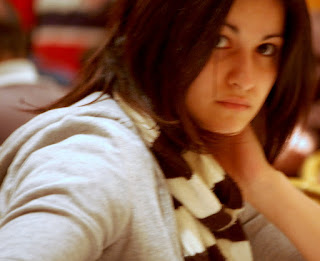Chess and Drugs
We were in a cold war several decades ago, and organizations like the CIA and NSA were working on ways to get every advantage over the USSR. With the help of Doctor Timothy Leary new types of drugs like LSD along with a new set of amphetamines were tested for their effectiveness in increasing a person's ability to think, especially in stressful situations. Early human guinea pigs for these drugs were prisoners like the notorious Whitey Bulger, then a resident of Alcatraz.
Later a group of Boston area chessplayers volunteered to do their patriotic duty to see if these drugs would improve performance. Results of demonstrated performance improvement were not obvious except in the case of one person who seemed to benefit: that was lawyer, columnist, philanthropist, author, Harold Dondis.
Harold Dondis with Klara Polgar at the Boylston Club in 1985 - photo: stepak.
Continued experimentation over following years indicated that there were no drugs that could enhance chess playing. In June 1999 the International Olympic Committee officially recognized chess as a sport, and being such, players were subject to drug testing.
Although the debate as to what drugs to test for went on. On Dec 11, 2008 Grandmaster Vassily Ivanchuk refused to submit a urine sample for a drug test at the Chess Olympiad in Dresden and created a furor; but it was eventually decided, due to technicalities, that he would not be suspended for two years. Most players felt this testing was dumb.
Until very recently this has been everyone's belief relative to chess. But at this moment new research and some rogue student experimentation, have demonstrated that ADAH (Attention-Deficit Disorder) drugs do in fact enhance mental performance and focus of "normal" people. Adderal, Ritalin, and newer drugs are being used. What's even more interesting/controversial is that there is a group of scientists advocating the use of these drugs by normal people in order to improve their study or work?! (url below) In the last month, Martha J. Farah has been interviewed several times by NPR advocating this position. To wit, I think that chess has found its drugs to test for.
It's illegal to self prescribe these drugs, and I would advise you to check out the not so nice side effects of these drugs, like insomnia and lack of appetite. And the biggest risk is the increase of dopamine in the brain, which could cause addiction.
Doctors weigh the therapeutic advantages vs the side effects when prescribing drugs and clearly with some folks with ADAH, the benefits outweigh the risks. I hope that introduction into mainstream society of these drugs doesn't pressure any one to feel they have to take them to be competitive. Just like what has happened in the steroids situation; Where you have a huge youth athlete population taking them. I feel the real pluses and minuses to society should be weighed and opinion and law be formulated based on fact in dealing with health and social protection. I just see it as interesting that the people advocating it's use by everyone have capitalistic interests, but drugs for recreational use are bad. Just the hippy in me, I guess.

What are your feelings about performance enhancing drugs? Please comment. Thank You, Mike Griffin 02/05/2009
http://www.nature.com/nature/journal/v456/n7223/full/456702a.html
http://chess.about.com/b/2009/01/24/ivanchuk-cleared-of-wrongdoing-in-drug-test-flap.htm
http://media.www.thepolypost.com/media/storage/paper1127/news/2008/03/11/News/Students.Abuse.Stimulants.Adderal.To.Stay.Up.Studying-3261876.shtml
 who has played at the Boylston since he was a boy and had been active in Mass scholastic chess, attained the title of National Master at the Amateur Team East, probably becoming the most recent chess master from Massachusetts.
who has played at the Boylston since he was a boy and had been active in Mass scholastic chess, attained the title of National Master at the Amateur Team East, probably becoming the most recent chess master from Massachusetts. also had a terrific result, earning 5.5 points and placing #23 of the 1201 players in Parsipanny.
also had a terrific result, earning 5.5 points and placing #23 of the 1201 players in Parsipanny. was on board 3;
was on board 3; 
 alternated on board 4.
alternated on board 4.














